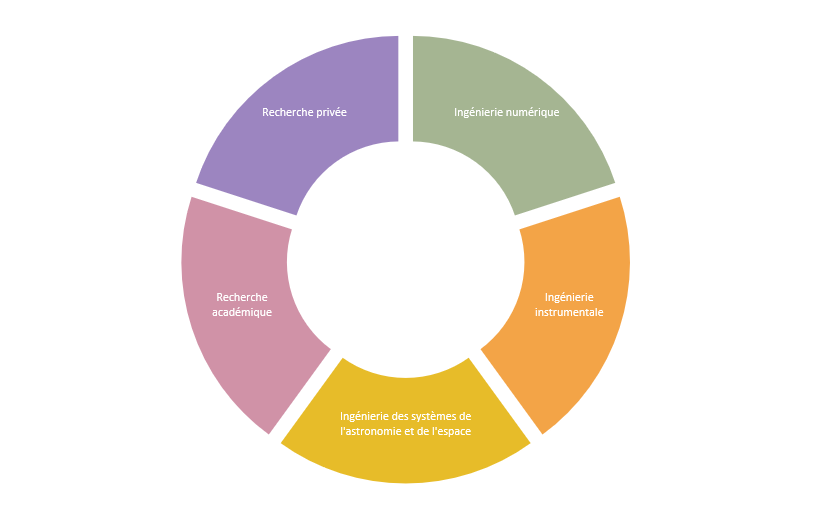
Astrophysics
The Graduate Program in Astrophysics offers a comprehensive curriculum of advanced study and research, from the Master's to the Doctorate degree, in astronomy and astrophysics. Supported by research laboratories at the Observatoire de Paris - PSL and ENS - PSL, and by the space campus , the graduate program offers a MasterÔÇÖs degree in which research plays a central role. Students may also choose elective courses designed to improve their transdisciplinary skills and broaden their curriculum.
Key figures
Subjects
Sun, plasma
Planets, exoplanets
Stars and the interstellar medium
Galaxies and cosmology
Instrumental and digital engineering
Space engineering
High-energy astrophysics
Gravitation
A five-year track from MasterÔÇÖs to PhD
Upon entering the MasterÔÇÖs degree program, each student will define their scientific project with the graduate program's faculty and researchers. Students will have an academic advisor and will be heavily involved in research throughout the program.
Choose your MasterÔÇÖs degree and define your academic path
The graduate program offers the following MasterÔÇÖs degrees:
Enhance and customize your academic path: elective courses
Complementary university-wide courses
Graduate program students at both the MasterÔÇÖs and PhD level have access to university-wide trainings in core competencies, both introductory and advanced, designed to supplement their academic study.
Those complementary university-wide courses, available in all of PSLÔÇÖs component schools, are eligible for ECTS credit.
Career opportunities
Trained in and through research, PSL alumni find numerous employment opportunities in the public, private and entrepreneurial sectors as well as in the academic world.

Pursue a PhD
Doctoral research is conducted in a PSL laboratory. Training is conducted in a doctoral school.
Graduate program doctoral schools
Graduate program laboratories
Contact
Graduate Program Director:
Benoît Mosser (Observatoire de Paris - PSL)
gp-astrophysics@psl.eu


